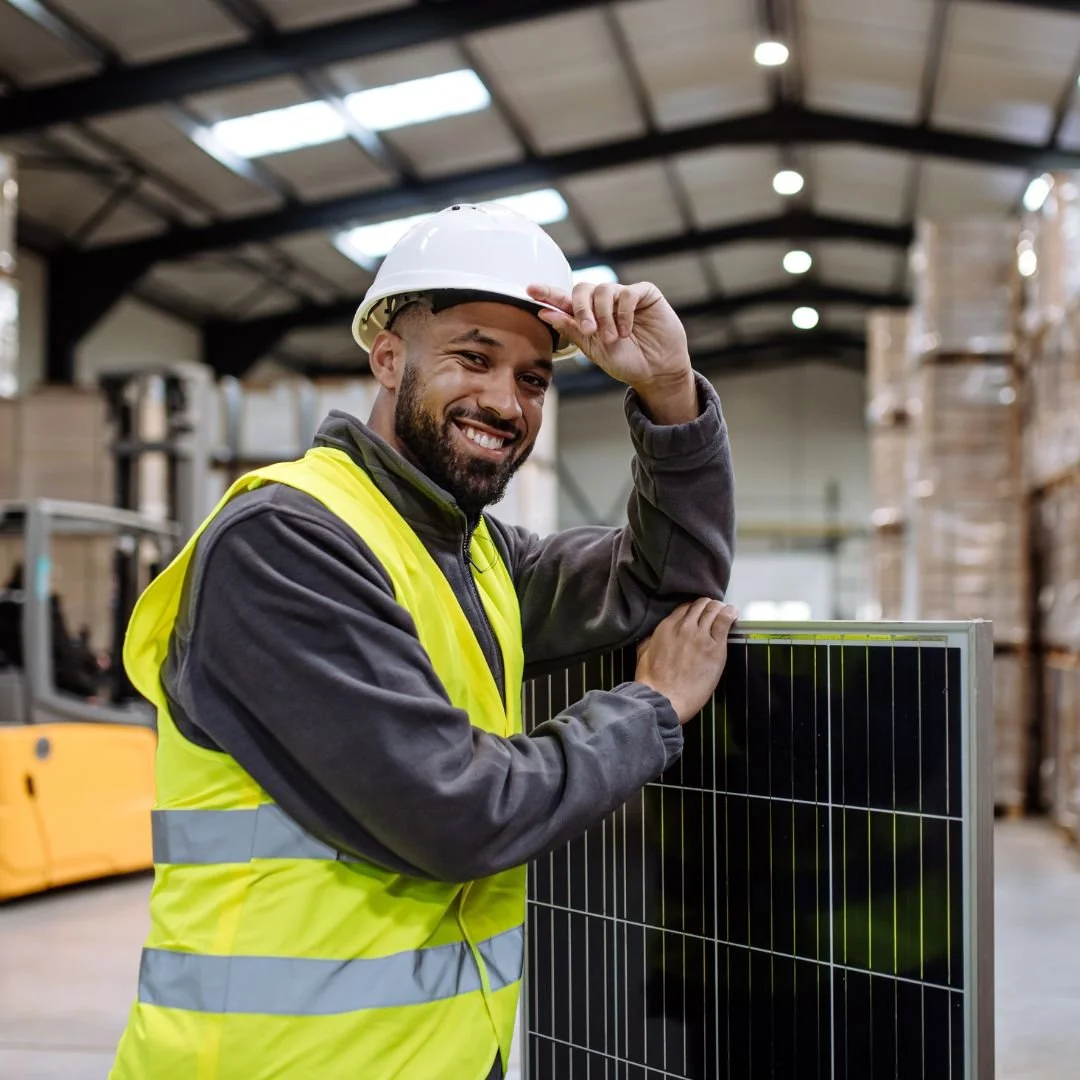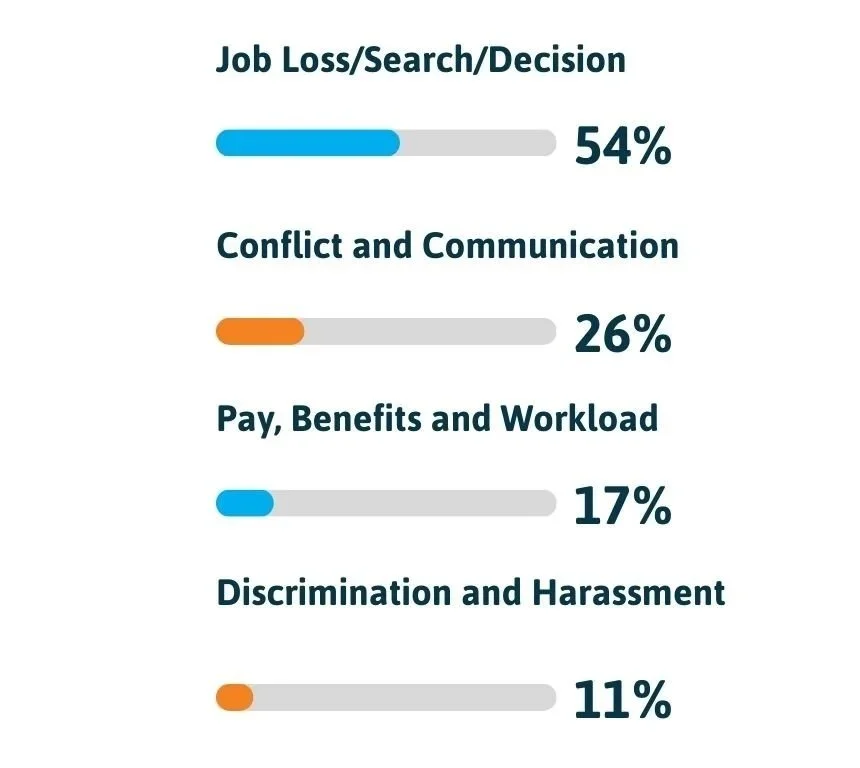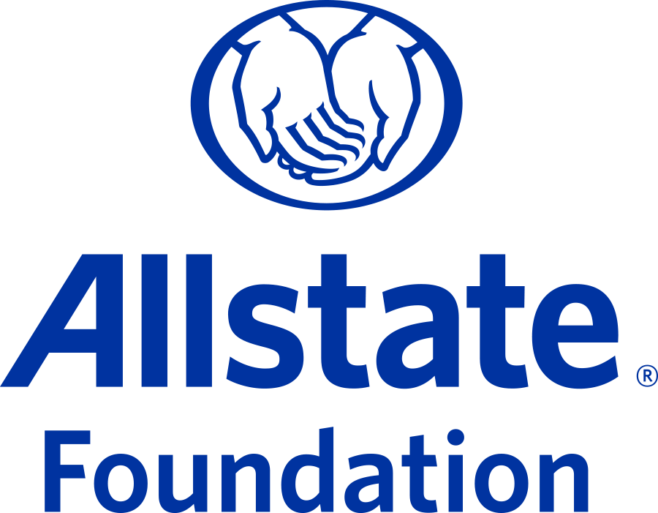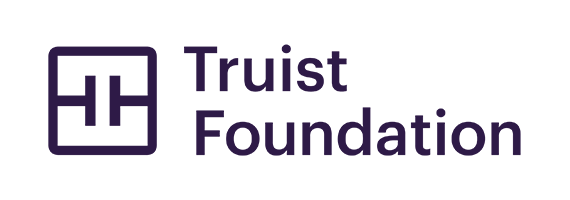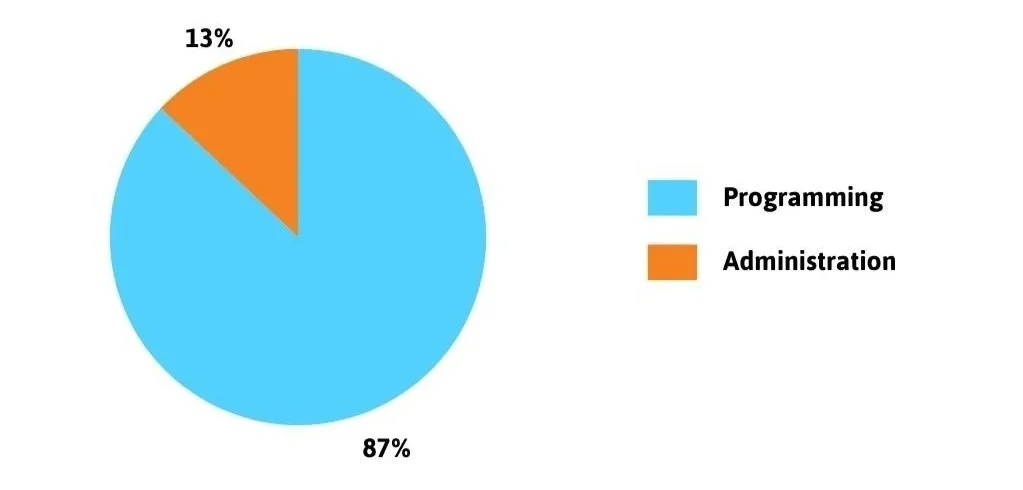
Our 2024 Impact Report:
A Year of Rising Job Loss and Deepened Support
A Letter From Our CEO
In 2024, more people than ever turned to Empower Work for immediate, confidential work support. We reached a milestone of supporting more than 432,000 workers since 2018, using our human-centered, high-impact model to provide wraparound services that meet people where they are.
Every day, we hear from people navigating some of the hardest moments in their work lives—being laid off, stuck in an unhealthy workplace, or struggling to make ends meet while job searching. These moments are not just about employment. They’re about identity, stability, and agency—all of which impact our economic well-being and mental health.
Conversations about job loss rose to 54% in 2024.
Notably, we saw an immense surge in text line conversations about job loss and prolonged job searches—more than doubling from 22% in 2023 to 54%. The sharp shift led us to dig more deeply into understanding the story beyond just the data. Each job loss and job search can have a profound personal cost.
In our report, The Hidden Realities of Job Searching in 2024, we highlighted new insights. Four out of five workers—over 78%—are actively looking for work because they are dissatisfied, underemployed, or unemployed and that job searches are taking nearly half a year.
The learnings through the job search report, text line data, and other programmatic insights informed how we’ve risen to the need. We created new job loss and job search content, launched fresh training materials, as well as explored additional ways to meet practical needs given the longevity of searches. We saw a record 20% increase in our text line usage, while we also saw a dip in content usage due to changes in Google’s search algorithm. We’ve doubled down in areas that are working for our text line and actively adjusting our outreach strategies in 2025 to reach people when and where they need work support whether that’s in communities like Reddit or generative AI search.
At Empower Work, we listen deeply to what’s most important to people. We keep a human-centered approach throughout all our programs from data and policy, to our AI roadmap, and our coaching model. In moments of stress, shame, and overwhelm, connection and support can be transformational. On the text line, trained peer counselors provide space to reflect, access critical resources, and find a way forward. Our online resources support people through a variety of work issues—from job searches to workplace stress to a bad work environment. The impact is clear:
“I was feeling trapped; it has been impacting my health [...] My EW counselor inspired, shared, educated, offered resources, heard […] I feel hopeful and inspired to move forward and out of a toxic work environment with confidence and a plan without the fears that were partially paralyzing me about my tenure, worth, resume, the workforce, etc. Lifesaving—literally. Thank you.” - Empower Work help seeker
More than 94% report improved mental health.
More than 94% of people who reached out reported improved mental health and 77% reported improved economic well-being. In 2024, we measured our economic impact more deeply, listening to all the ways that help seekers account for economic gains - from wage increases to transportation or childcare lessening. On average, help seekers saw a 25% increase in economic gain from those who engaged with our text line.
This impact could not have been made without you—our incredible community. To our volunteers, champions, donors, board, and team: thank you. You are making a difference in the lives of workers, families, and communities across the country.
Our 2024 Impact report offers a window into what workers are experiencing—and how Empower Work continues to meet people’s needs with empathy, innovation, and action.
Together, we can continue to grow this impact.
Onward,
Jaime-Alexis Fowler
CEO and Founder, Empower Work
How We Fuel Change
We’re on a mission to create healthy, equitable workplaces where people are valued, supported, and empowered in ways that support their economic mobility, emotional well-being, and career success.
Our Approach
Direct Service: Our free, confidential text line improves well-being for historically marginalized workers through coaching and resources that support increased confidence, clarity, agency, empowerment, and economic security.
Training and community: We improve workplace skills, practices, and education through our training platform for both volunteers and community partners.
Policy and practice change: We root approaches to systemic workplace change in worker’s experiences through data and stories.
Our Key Outcomes
Economic Security: Fair financial compensation for work and access to supportive pathways that lead to greater career mobility. When dislocated from work, safety net resources that provide a steady and secure source of transitional income and support to pursue next steps in their job search.
Emotional Well-Being: Good mental health that enables people to manage stress amidst challenges, embrace their abilities and agency, and work well. Support for mental well-being individually and systemically as it underpins people’s ability to make decisions, build relationships, and feel secure.
Equitable Workplaces: Workplaces that recognize the intentional and unintentional barriers that prevent people from thriving and embrace ongoing work to create practices and structures that ensure economic and emotional well-being where workers can reach their full potential.
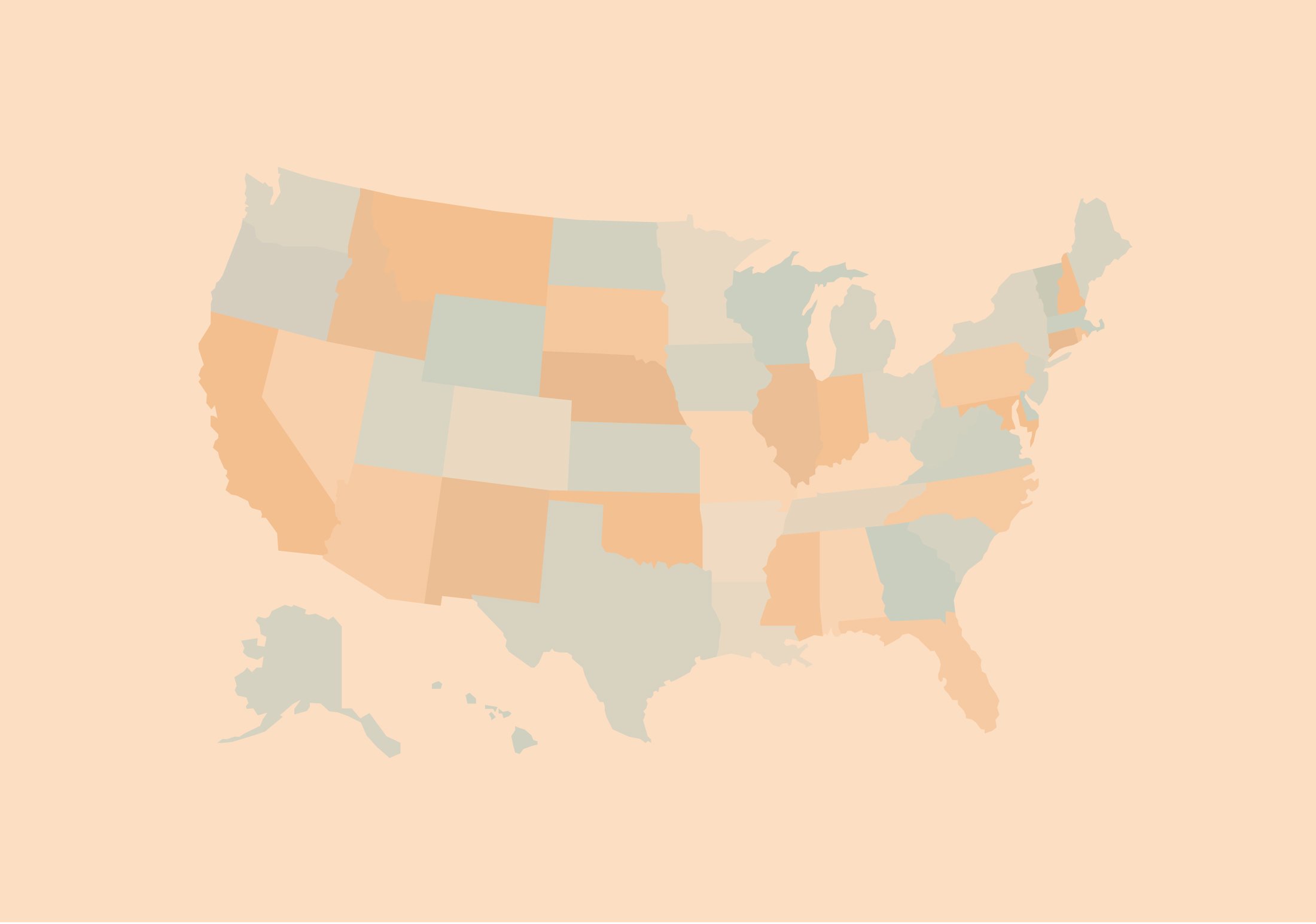
Who We Support
We help workers across every part of the U.S. — from rural areas to major cities. Those we support often feel isolated or vulnerable. The majority work in businesses or organizations with fewer than 50 employees. We ask for demographic information in post-use surveys to make sure the people we’re reaching match the communities that need the most help, and that our staff, board, advisors, and volunteers reflect those we serve.
56% identify as a woman
17% identify as LGBTQ+
86% earn less than $75,000, and 42% earn less than $25,000/year
57% identify as a person of color
Top industries: Health & Human Services, Service Industry, Tech (IT), and Retail
Scaling Our Work to Meet the Moment in 2024
In 2024, we focused on strengthening support across all of our programs—especially around job loss, job search, and career success.
Each part of our model—direct service through our text line, skill-building and community through volunteering and training, and driving policy and practice change through data and worker voice—plays a role in reshaping the workplace and helping people thrive at work.
As challenges in the workplace continue to evolve and arise, we scaled our work to meet the moment. Here’s how:
Innovative Workforce Partnerships
In fall 2024, Empower Work launched innovative partnerships with five leading workforce organizations—Memorial Assistance Ministries, NPower, Per Scholas, SkillUp Coalition, and Year Up United. With generous support from the Truist Foundation and GitLab Foundation, this initiative integrates Empower Work’s confidential, text-based coaching into the career journeys of workforce program alumni, extending support.
Each year, hundreds of thousands of people across the United States graduate from training, skilling, re-skilling, and other job programs equipped with new tools for success, connections, and apprenticeships, internships, or jobs that provide the foundation for strong economic advancement. However, beyond these programs, people often encounter systemic barriers and ongoing workplace adversity which can deeply affect their lives and stymie opportunity.
This text-based approach for community and alumni support builds on lessons learned in wraparound services during programs, creating a scalable structure for growing learning and alumni communities that ensures people thrive in their careers and life. In this pilot, the team will learn more about the needs of community and alumni at scale, and the best ways to address these needs with the goal of growing to many more partnerships in the future.
Connection Protection
We launched the Connection Protection program in 2023—a partnership between Visible and Empower Work that supports people who are experiencing a job loss, had their hours cut, or are between jobs. In 2024, this program saw exponential growth—a 244% increase from 2023, with over 14,000 applicants.
Within three months of participating in Connection Protection:
Nearly 1 in 5 people have accepted a new job,
1 in 4 people have received job offers, and
more than 2 in 5 people have had interviews.
Given the 2024 job market realities that the median unemployment duration in 2024 averaged at nearly 5 months, our participants are achieving substantial progress ahead of national averages.
Our AI Roadmap
We believe AI can be a significant tool for scaling and creating efficiencies in our service, yet our work listens deeply to those we serve to ensure we’re applying technology thoughtfully and responsibly. In 2024 we conducted UX research that showed our help seekers wanted to talk to a human, not an AI bot, and this was confirmed with academic research showing people still prefer to talk to a human for empathy-based services and the impact of the service (positive emotion, follow through) is greater when it’s a human.
In light of that, we started our AI roadmap with tools to help our peer counselors scale their support for our help seekers, keeping the human-connection at the center.
We began with the real felt pain points and needs of our counselors and then iteratively built the technology from there. Together we uncovered three big needs for the assistant: next response guidance, relevant resources look up, and quick summarization. We then built a live prototype, trained on high-quality past conversations and formed an AI Advisory Council of peer counselors to help us regularly review outputs, provide feedback, and refine the assistant through continuous prompt updates.
In summer 2025, we officially launched the assistant across the back end of the text line. Since then, we’ve seen strong adoption and received lots of positive feedback with counselors saying it helps them when they are stuck and has allowed them to much more easily manage multiple conversations at the same time while on the line.
Hear From Empower Work Help Seekers
Empowerment starts with a conversation. Every day, people reach out to our text line feeling stuck, uncertain, and unsure of which next steps to take. After a conversation, 94% of people report improved mental health. In this video, you’ll hear real stories and experiences of people who reached out to our text line.
Hear From A Volunteer Peer Counselor
Ever curious about the impact of our volunteers or what it’s like to volunteer? Hear from Abby Swerin, a volunteer peer counselor at Empower Work with over 400 hours on the text line.
2024 Text Line Trends
Every year, we analyze trends in our text line data to better understand the challenges workers are facing in real time. In 2024, job search struggles emerged as the top issue—making up 54% of our overall text line volume. Within those conversations, many were focused specifically on interview and application challenges, including not hearing back from employers, navigating online systems, managing interview anxiety, and figuring out how to follow up after interviews.
Despite the positive highlights of low unemployment rates and wage gains post-pandemic in 2024, there was also an untold story: the majority of workers did not feel like the job market was good - and it was taking a toll emotionally and economically.
Many help seekers expressed frustration, exhaustion, and fear about the job market.
One Empower Work help seeker shared:
“I've been unemployed since January 2023 despite submitting hundreds of resumes and attending numerous interviews."
While economic indicators like low unemployment and rising wages paint a promising picture, these numbers didn’t reflect the lived experience of job seekers—many of whom felt stuck, disheartened, or invisible in the hiring process.
Beyond job search issues, we saw continued high volumes of outreach related to workplace dynamics, including manager and leadership challenges, work-life balance concerns, and conflicts with coworkers.
Top conversations on the text line:
Textline metrics:
What’s Ahead in 2025 and Beyond
In 2025, we’re continuing to see a rise in work-related challenges, particularly around job searches. Conversations about job search and job loss are averaging around 60%—making up more than half of text line conversations. A significant portion of these texts come through our workforce partner collaborations, as we experiment with the best ways to connect and deepen impact together for the communities we serve.
As we stay centered on improving mental health and economic well-being for low-wage and historically marginalized workers, we’re focused on strengthening and expanding our workforce, community, and channel partnerships, deepening our policy and data work, and continuing to develop our AI roadmap that leverages technology to grow our reach 10X.
Thank You
Your support is an instrumental force behind Empower Work.
To every volunteer who powered the text line, every donor who invested in the lives and well-being of workers, every partner who helped us grow and extend our support, and every person who reached out to our line—you are the reason this community thrives.
Because of you, Empower Work continues to be a trusted space where people feel heard, valued, and equipped to take the next step. Together, we’re transforming the world of work and helping people get the support they deserve.
* See our pro-bono and in-kind supporters here.
Our supporters include myriad individual, organizational, and institutional support. A special thank you to our 2024 institutional supporters:
How You Can Help
As we continue paving the path for better workplaces - ensuring people don't just make it to a good job opportunity but are thriving in their working journey, you can help. Here's how:
Donate to make a difference in the lives of workers. Your donation goes to work right away. We live our values inside and outside of the organization—everything we do is focused on helping workers, including our funding. Empower Work also accepts stock donations via Every.org at no cost to the organization. Donate stock today.
Partner with us. Bring Empower Work’s unique text line support to your organization, affinity group, or local community and help your people navigate difficult work moments. We offer extended support, scalable resources, and insights for your community.
Volunteer with us. Interested in developing your professional skills while making a difference? Sign up to become a volunteer peer counselor at Empower Work.
Curious to learn more or get involved in other ways? Email us: team@empowerwork.org.
How We Use Our Funds
Empower Work’s model centers workers, as does our funding. 87% of our funds go directly to support workers. We also invest in our organizational health—including administrative work—in order to have a sustainable, expanding organization that continues to help workers thrive.
Empower Work is a gold-level organization on GuideStar , demonstrating our commitment to transparency. Check out our financial history here.
Curious to learn more or get involved in other ways? Email us: team@empowerwork.org.



